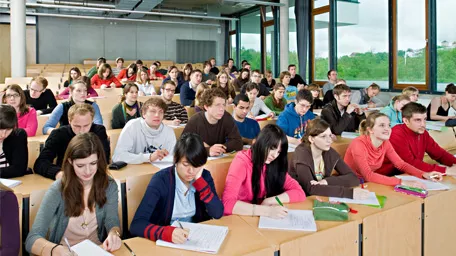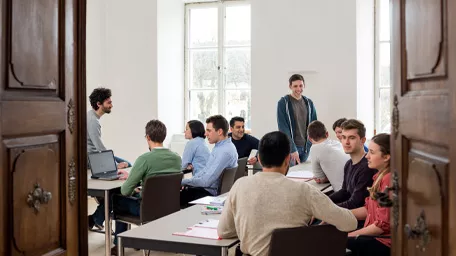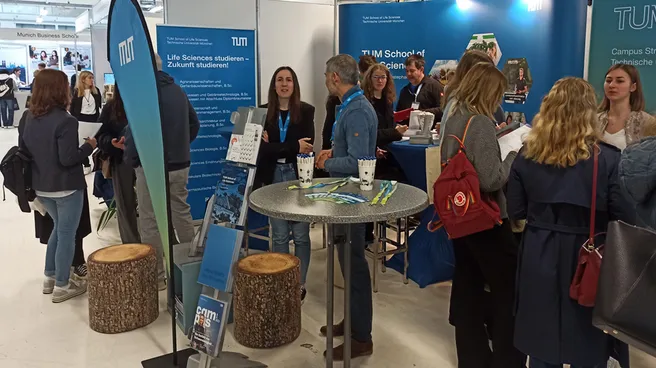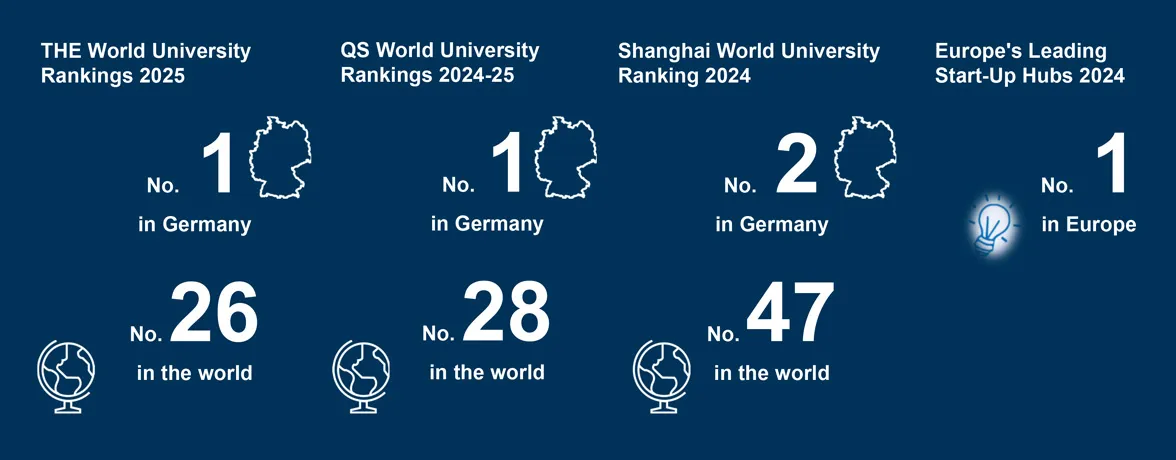Study Life Sciences – study the future!
With a course of study in the field of life sciences, you are opting for a young, interdisciplinary science. Because when it comes to researching the topics of our time, such as securing the world's food supply, the scarcity of fossil fuels, climate change, environmental protection and the decline of species, knowledge from the traditional subjects is no longer sufficient.
Be part of the solution to the problems of this world! At the TUM School of Life Sciences we focus on the potential of interdisciplinary education in current research fields. We conduct research at the interfaces of the subjects and combine modern methodology, digital tools and the excellent technical background of TUM to tackle the challenges of the future.
The life sciences make you fit for the job: By combining sound knowledge from various scientific disciplines, you can acquire an individual profile and are well equipped for the diverse future fields in research and industry.
Agricultural and Horticultural Sciences (B.Sc.)
Agricultural Biosciences (M.Sc.)
AgriFood Economics, Policy and Regulation (M.Sc.)
Agrosystem Sciences (M.Sc.)
Biology (M.Sc.)
Brewing (Master brewer (Diplombraumeister))
Brewing and Beverage Technology (B.Sc.)
Brewing and Beverage Technology (M.Sc.)
Conservation and Landscape Planning (M.Sc.)
Ecological Engineering (M.Sc.)
Food Chemistry (B.Sc.)
Food Chemistry (M.Sc.)
Food Technology (B.Sc.)
Food Technology (M.Sc.)
Forest Science and Resource Management (B.Sc.)
Forest and Wood Science (M.Sc.)
Landscape Architecture and Landscape Planning (B.Sc.)
Life Sciences Biology (B.Sc.)
Life Sciences Nutrition (B.Sc.)
Molecular Biotechnology (M.Sc.)
Molecular Biotechnology (B.Sc.)
Nutrition and Biomedicine (M.Sc.)
Pharmaceutical Bioprocess Engineering (B.Sc.)
Pharmaceutical Bioprocess Engineering (M.Sc.)
studium MINT (Certificate)
Sustainable Food (M.Sc.) – at TUM Asia in Singapore
Sustainable Resource Management (M.Sc.)
Teaching at Academic Secondary Schools - Scientific Education, Subject combination biology/chemistry B.Ed. and M.Ed.
Teaching at Academic Secondary Schools - Scientific Education, Subject combination biology/informatics B.Ed. and M.Ed.
Vocational Education Agriculture (Teaching at Vocational Schools) B.Ed.
Vocational Education Agriculture (Teaching at Vocational Schools) M.Ed.
Vocational Education Nutrition and Home Economics (Teaching at Vocational Schools) B.Ed.
Vocational Education Nutrition and Home Economics (Teaching at Vocational Schools) M.Ed.
Events for prospective students
Would you like to get to know our university better? At the events for prospective students, you will gain lively insights into studying at TUM and can talk to other students and our student advisors. We will be happy to answer your questions in a personal consultation.
Experience lectures

Do you want to experience a real lecture? In our course catalog for prospective students, you will find a selection of well-suited lectures for a first impression.
- Time: during the lecture period (in presence)
- Registration: not required as a single person
- More info
Workshop for study orientation

You don't know what to do after graduation? Do you have any idea which course of study suits you? Then come to our study orientation workshop!
- presumably in presence (campus Munich)
- in German
- More info, dates & registration
vocatium student fair Munich

Which Bachelor's degree program is right for me? Visit the TUM School of Life Sciences at the trade fair stand at vocatium Munich and find out in discussions with the student counsellors:
- May 13th/14th, 2025, 8:30 am - 2:45 pm
- MTC Munich
- More info


